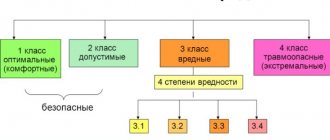from 3,000 rubles*
calculated individually, depends on the number of communications
Topographic surveys are done at all stages of construction, for the cadastre, and also during design. However, if there are communication networks or structures in the area where the topographic survey is being carried out, then the correctness of their placement on the topographic plan must be agreed upon. Without this approval, the topographic survey is considered incomplete. The approval is recorded with the organization's seal on the drawings.
Why is this necessary? Not all communications can be seen or detected by a route finder; some are underground, hidden, and abandoned. To avoid accidentally damaging anything, we came up with an approval procedure.
The speed of approval depends on the number of networks and their balance holders. The regulations of the latter establish the deadline for approval. For example, if there are no MOESK networks on the site, then the approval will definitely fit within two calendar months. In MOESK, the internal regulations for approval are 1 calendar month, but this regulation is not observed. As a result, approval may take up to 3 months or more.
Reconciliation mechanism
So, the first stage is making a topographic map and drawing all known communications. Geodetic survey of a land plot involves the competent preparation of an up-to-date topographic plan. When forming a plan, indicate the location and parameters of communication nodes. To search and display underground objects, route-search devices, cameras, and wells are used. All information that is available on special plates is transferred to the geodetic plan. Then the negotiation begins:
- the situation plan and site diagram are submitted to the district administration (district department of the Committee on Architecture and Urban Planning), in response we receive a list of balance holders with whom it is necessary to coordinate the topography (such as MOESK, Gas Service, Rostelecom, Voentelecom, Heating Networks, Vodokanal).
- Each balance holder is sent: a situational plan,
- topography A0,
- copy of TIN,
- covering letter,
- A copy of the OGRN and a copy of your passport may also be required.
Coordination is usually carried out by the company that did the topographic survey. Surveyors don’t like to coordinate someone else’s topographic survey and won’t undertake it. The owner of the site can independently make the approval.
Procedure (procedure) for agreeing on contractual terms
The procedure for concluding an agreement determines the procedure for agreeing on the conditions necessary for concluding an agreement, as well as a number of additional actions that must be performed in order to generate an agreement (give it legal force).
As with the definition of a set of contractual terms that require approval upon its conclusion, there are significant differences in the procedure for concluding a contract under Russian and international law, as well as the law of foreign countries.
Russian legislation establishes a rather strict procedure for concluding contracts, which is as follows.
In accordance with the procedure established in Art. 423-449 of the Civil Code of the Russian Federation, the party interested in the contract must send a proposal to conclude a contract (offer) to the potential counterparty. This proposal must be in writing and contain all the essential terms of the contract that is proposed to be concluded.
The corresponding proposal to conclude an agreement may also be addressed to an indefinite number of persons. In this case, it must also be in the form of a written document and contain all the essential terms of the proposed contract. In the absence of essential conditions, such appeal is qualified as business information or advertising.
In international and foreign contractual practice, it is not required that the party interested in the contract necessarily send a written proposal (offer) to the potential counterparty. An agreement can be concluded by performing actual actions of the parties (Article 2.1 of the UNIDROIT Principles, Article 2:101 of the PEDP, Article 2-204 of the US Labor Code, etc.), i.e. a proposal to conclude a contract can also be expressed in the form of actual actions. In particular, according to paragraph 3 of Art. 2:201 PEDP the listing of a product by a professional supplier indicating its price is presumed to be an offer to sell this product at that price until the product runs out.
An offer to conclude a contract that meets the criteria of an offer binds the party who made it and imposes a certain legal liability, which may consist of the obligation to compensate for losses in case of refusal of the made offer to conclude a contract if the other party has begun preparations for concluding or executing the contract and has incurred certain costs.
This is the general approach under both Russian and foreign law.
A written proposal to conclude a contract (offer) can be made in the following ways:
1) by sending the developed draft agreement to the other party. Russian legislation does not establish requirements for the number of copies of draft agreements to be sent, however, practice shows the convenience and cost-effectiveness of sending copies according to the number of parties to the agreement being concluded (if a bilateral agreement, then two copies, if a trilateral agreement, then three, etc.);
2) by sending another written document, including a letter or telegram containing a proposal to conclude an agreement. A proposal to conclude an agreement can also be given in the form of a teletype, fax, or electronic communications, if it can be reliably established that the document comes from the enterprise, institution, or organization that made it (Article 434 of the Civil Code of the Russian Federation).
Practice shows that the most effective way is to send a prepared draft agreement to the counterparty. In this case, it is possible not only to successfully realize legal and technical advantages when developing an agreement, but also to minimize the risks associated with the process of exchanging documents.
In particular, the use of telephone messages, faxes, and electronic means of communication when concluding a contract is less reliable due to their possible falsification. To minimize such risks, it is necessary to provide in advance in a written agreement the very possibility and procedure for reproducing the signature of authorized representatives of the parties in such a document (Clause 2 of Article 160 of the Civil Code of the Russian Federation). This means that a written agreement should be previously concluded with the intended counterparty, in which the appropriate method of execution of the contract and a code designation confirming that the signature belongs to an authorized person should be determined.
In a written proposal to conclude a contract, it is advisable to indicate the time for response (acceptance). This is especially important in cases where it is necessary to speed up the conclusion of an agreement. If acceptance is not received within the appointed period, then the offer is considered not accepted and the person who made the offer has the right to find another counterparty.
If the proposal to conclude a contract does not indicate the time for a response, then by virtue of Art. 441 of the Civil Code of the Russian Federation, the answer must be given within the normally required time. The legislation does not determine what time can be considered normally necessary for a response, however, it is recommended to stay within the 30-day period (by analogy with Article 445 of the Civil Code of the Russian Federation), unless, of course, a different period is indicated in the proposal itself.
The party that has received a draft or proposal to conclude an agreement often agrees to enter into an agreement, but on different terms. Such counterproposals must be made directly and unambiguously. If the agreement is concluded by signing the draft, then it is recommended to sign the agreement with a note before the signature indicating the presence of disagreements, i.e. Before the signature, a note is made: “with disagreements.” A protocol of disagreements is attached to the returned copy of the agreement. This document is mentioned in Art. 445 and 528 of the Civil Code of the Russian Federation. In practice, it is drawn up in the form of a comparative table of the texts of the proposal and the response or as a counter statement of the wording of the terms of the contract.
When concluding agreements by exchanging letters, telegrams, or faxes, it is recommended to indicate counterproposals made in the responses given and highlight them in the text of the response. To avoid complications, company employees assigned to the relevant area of contractual work must compare and contrast the texts of the proposal sent and the response received.
Russian legislation establishes a strict rule about the inadmissibility of any discrepancies in the content of the proposal to conclude an agreement (offer) and consent to conclude an agreement (acceptance). Acceptance must be complete and unconditional, without any discrepancies with the text of the offer. By virtue of Art. 443 of the Civil Code of the Russian Federation, a response containing conditions other than the offer is not considered an agreement to enter into an agreement. It qualifies as a counteroffer to conclude an agreement on new terms (new offer).
In international and foreign contract law, a less rigid approach to determining the content of an offer and acceptance has developed. A response to an offer that contains additional or different terms that do not materially change the terms of the offer is considered to be an acceptance unless the offeror objects to the differences without undue delay *(16).
The unsuitability of the strict approach to the content of the offer and acceptance enshrined in Russian legislation is confirmed by practice: many unscrupulous business entities use the slightest discrepancies in these documents to file claims for recognition of contracts as not concluded in order to subsequently evade fulfillment of contractual obligations. The upcoming changes in civil legislation may change the situation for the better, since it is planned to adopt the approach to the content of offer and acceptance that has developed abroad.
A party that has received a response agreeing to enter into an agreement, but on different terms, may choose one of the following options:
1) take measures to resolve disagreements. Typically, dispute resolution is conducted by authorized company officials. In some cases, especially when the conclusion of an agreement is extremely necessary, and the counterproposals received are unacceptable, in order to achieve a mutually acceptable compromise solution, it is recommended not to engage in correspondence, but to try to negotiate the agreement being concluded.
It is recommended that the results of consideration of disagreements be formalized either in the form of a protocol for resolving disagreements, which should be an appendix to the agreement, or by drawing up a new text of the agreement. If negotiations are impossible, or if the counterparties are located remotely, it is recommended to send the other party a letter with a reasoned statement of your position. In many cases, such actions lead to an adjustment of the counterparty’s position and contribute to the establishment of contractual relations;
2) give written confirmation for the inclusion of counterproposals in the contract. Communication of such consent entails recognition of the contract as concluded on the terms stated as disagreements;
3) consider the proposals received as proposals to conclude an agreement on new terms;
4) submit the dispute under the terms of the concluded agreement for resolution by an arbitration or arbitration court.
The possibility of submitting disagreements under a concluded agreement to court resolution is extremely limited. A similar course of action under Russian law is permissible in the following cases.
Firstly, when the parties themselves entered into an agreement to submit the dispute under the terms of the concluded agreement for resolution by the court. In practice, such a situation occurs extremely rarely.
Secondly, when the contract is concluded without fail. Such appeals, as practice shows, are possible when a party to a preliminary agreement evades concluding the main agreement or when deviating from the agreed terms (Article 429 of the Civil Code of the Russian Federation), under discriminatory conditions of a public contract (Article 426 of the Civil Code of the Russian Federation), if disagreements arise regarding mandatory the concluded agreement, as well as the supply agreement for government needs, concluded on the basis of the contract and notice of attachment, and in a number of other cases.
If the law or agreement of the parties provides for the transfer of disagreements that have arisen to an arbitration court, then the statement of claim regarding the pre-contractual dispute must be sent to the court at the location of the defendant no later than 30 days from the date of receipt of the disagreements. Failure to go to court with a claim to resolve the disagreements that have arisen entails the recognition of the contract as not concluded.
Thus, if the party that received a response with disagreements was unable or unwilling to resolve them, or did not go to court with a claim for the obligation to conclude an agreement when it had the right or was obliged to do so, the agreement is considered not concluded.
For individual contracts, additional requirements for the procedure for concluding contracts may be established.
According to Russian law, these requirements boil down to:
1) submission of an agreement for state registration.
The legal consequence of non-compliance with the requirement for state registration is the non-conclusion of the contract (clause 3 of Article 433 of the Civil Code of the Russian Federation);
2) transfer of property in cases where the law connects the fact of concluding an agreement with the necessity of such. The agreement is considered concluded only after the transfer of the relevant property (clause 2 of article 433, article 224 of the Civil Code of the Russian Federation).
It is necessary to distinguish the procedure for concluding an agreement from the methods of concluding an agreement. Methods of concluding a contract mean various techniques and methods for establishing contractual relations.
In practice, the following methods of concluding an agreement are used:
1) by drawing up one written document signed by the parties (clause 2 of Article 434 of the Civil Code of the Russian Federation), including as a result of negotiations;
2) by exchanging written documents through postal, telegraphic, teletype, telephone, electronic and other communications that make it possible to reliably establish that the agreement comes from the party to the agreement (clause 2 of Article 434 of the Civil Code of the Russian Federation);
3) by performing implied actions, i.e. performance by the person who received the offer within the period established for its acceptance of actions to fulfill the terms of the contract specified in it, including shipment of goods, provision of services, payment of a sum of money, etc. (Clause 3 of Article 438 of the Civil Code of the Russian Federation);
4) by joining the agreement (Article 429 of the Civil Code of the Russian Federation);
5) by accepting an order, i.e. performing actions within the time period specified in the order;
6) by issuing the established document (Articles 887, 940 of the Civil Code of the Russian Federation, etc.);
7) through bidding;
 on the Internet.
on the Internet.
In some cases, legislation establishes mandatory methods for concluding certain agreements, failure to comply with which entails the invalidity of the agreement (concluding an agreement at an auction, by drawing up one document, etc.).
Currently, an increasing number of contracts are concluded through Internet communication networks. According to published data, the annual growth in trade turnover through the electronic market is about 30%.
The main advantages of this method of concluding contracts, called “electronic commerce,” are efficiency, simplicity, availability of necessary commercial information, and sufficient reliability. Agreements on the Internet are concluded in a standardized form, set out on the website in the form of a so-called web form. They are not adhesion agreements, since the buyer individually determines the assortment and quantity of goods, can agree with the seller on price changes, provide for the desired delivery times, etc.
To use this method of concluding contracts, the party offering goods (work, services) for sale must enter into an agreement with the provider to provide access to the server and provide information and services. On the seller’s website, an “electronic store” is formed as a set (collection) of text documents, through the use of which contracts are concluded.
The most important point at this stage of contractual work is checking the authority of the counterparty’s representative to conclude an agreement. In practice, there are many examples when concluded contracts are subsequently challenged on the grounds that they were concluded by unauthorized persons.
The legal consequences of such a challenge are:
- invalidation of the contract in accordance with Art. 168 or 174 Civil Code of the Russian Federation * (17);
- the emergence of rights and obligations under the contract not from the counterparty company, but from the person who entered into the contract on its behalf in accordance with Art. 183 Civil Code of the Russian Federation * (18).
It is advisable to check the powers of a representative as follows:
1) first of all, it is necessary to check how the law defines (limites) the powers of the legal or authorized representative of the counterparty company to conclude an agreement on its behalf. If the representative exceeds the powers limited by law to conclude an agreement, such an agreement may be declared invalid in accordance with Art. 168 Civil Code of the Russian Federation;
2) if the law establishes such restrictions, it is necessary to ensure compliance with the procedure for making a decision on concluding an agreement by the body of the counterparty company authorized by law;
3) check with the counterparty whether there are other restrictions on the powers of its representatives to conclude contracts in comparison with how they are defined in the law. In this case, you should study the constituent documents of the potential counterparty to identify such additional restrictions. If such restrictions exist, it is necessary to ensure that the decision to conclude an agreement is made by the body that is vested with the right to make the relevant decision by the constituent documents;
4) after checking the authority of the representative to enter into an agreement, it is necessary to make sure that the individual acting as a legal or authorized representative of the counterparty really is one.
In this case, you should first of all make sure that at the time of concluding the contract this person holds the appropriate position, has a non-revoked power of attorney, etc. To do this, you need to contact the counterparty and double-check the relevant information.
In addition, it is necessary to check the identity of the person who appears to be a legal or authorized representative of the counterparty with his passport data, and check whether it is a valid passport. In practice, there are many examples of concluding contracts using someone else’s, invalid, fake passports, as well as by dummies. Failure to comply with the above precautions entails serious legal risks of challenging the contract and applying public law sanctions (tax, etc.) to the company.
Advantages
Bureaucratic routine in our country, unfortunately, is the norm. It is very difficult to quickly resolve this issue on your own. Even if you successfully get into the official’s office and write a statement, the organization will not immediately issue topographical information on the project, but will consider it within a month. It happens that there is simply no factual information. What is the right thing to do in such a situation? What to do?
Certified specialists of our company will carry out engineering work of any level of complexity with high quality and reliability. Having arranged the copies of documents, we will create a desk topographic map. All objects on the site will be taken into account in full compliance with the norms of the current legislation of the Russian Federation.
Coordination is a preliminary review of the draft prepared document. Coordination is carried out with the aim of checking the compliance of the content of the text with current legislation, regulations of this industry, checking the correctness of the document, and assessing the quality of solutions to the issues raised in it.
Each of these areas is checked (or assessed) by relevant organizations or officials depending on their competence. The document can be agreed upon with other organizations (external approval), as well as with officials heading services and divisions within the organization (internal approval).
The “Approval stamp” attribute is used for external approval of the document and expresses agreement with the contents of the document. The details consist of the word AGREED (without quotation marks), the position of the person with whom the document is being agreed (including the name of the organization), personal signature, transcript of the signature (initials, surname) and the date of approval, for example:
AGREED
Director of MGTS
Signature M.A. Karpov
26.04.2004
The document is coordinated with organizations whose interests are affected by it. When agreeing on a document with a collegial body, the approval stamp indicates the name of the document in the nominative case, its date and number. For example:
AGREED
minutes of the trade union committee meeting
dated January 10, 2004 No. 3
If the approval of a document is carried out through the publication of another document, then the approval stamp indicates the type of document, its author (name of organization), date and number. For example:
AGREED
letter from the State Standard of the Russian Federation
dated 01/06/2001 No. 7/05-09
The approval stamp is located below the “Signature” attribute in the lower left corner of the document. Approval marks may be located on a separate “approval sheet” if the content of the document affects the interests of several organizations. In this case, an o is made on the document. The “Document Approval Visa” requisite is used for internal approval of documents and familiarization with them. The details include the signature of the endorser, a transcript of the signature (initials, surname) and date; If necessary, indicate the position of the visa holder, for example:
Head of HR Department
Signature I.N. Sidorov
25.11.2003
The document is endorsed by the executor, officials interested in the document, responsible persons of financial and economic services, lawyers, deputy head of the organization before the document is signed by the managers. If there are any comments on the document, a visa is issued as follows:
Comments are attached
Signature A.S. Popov
13.09.2003
If the visa applicant has any objections, the visa will not be issued. For a document, the original of which remains with the organization, visas are affixed to the bottom of the reverse side of the last sheet of the original document.
For a document whose original is sent from an organization, visas are affixed to the bottom of the front side of the copy of the document being sent.
It is allowed to issue visas on a separate approval sheet indicating which document this sheet relates to: the name of the document, its author, date and number.
Cost of approval
Our organization has extensive experience in coordinating topographic surveys at sites in Moscow and the Moscow region. The cost of approval work starts from 3 thousand rubles for each approval, excluding state duties and official payments.
As for state duties and fees, prices vary depending on the area, type of networks and size of the site. On average, if you add up the fees for 5 different services, you get:
- The minimum cost of approval is from 15 thousand rubles.
Our specialists are ready to answer your questions, call us: +7 and +7 (968) 369-13-10
The procedure for approving documents
The “Approval” module existing in the 1C: Document Flow program is a special document review tool. The user defines a list of employees to approve the document he created and starts. The order of text movement can be:
- simple, the document is available for work by everyone from a given list at the same time;
- complex, gradually the initial version acquires edits and changes and moves on to one or more coordinating ones.
With complex multi-step advancement, the document can return and move again sequentially along the chain. The progress of work on the text can always be seen in the document card by clicking on the “Processes” link.
After all employees have reviewed the document, the program will give a signal in the form of the task “Review the approval results.” The decision of each participant and their comments will be visible.
Setting up the document approval module
First, an access group is created for all users who have the right to participate in approval procedures. You can configure coordination functions for users included in one of two group options:
- Administrators;
- A new group in the profile with the role “Approval (configuration).
To record user roles, you need to go to the “Master data and administration” section in the settings. In the “Administration” folder, click “User and Rights Settings”. When you select an access group, a new profile is created. It adds the role "Approval (Usage)". After this, all participants are selected in the access group (creation) in the “Using Negotiation” profile.
Roles are created for performers who will participate in the approval. They can be recorded either by last name, first name, patronymic, or by position. For example, Ivan Nikolaevich Fedorov is on the list of users. You can select him from another list by the role of Chief Accountant.









